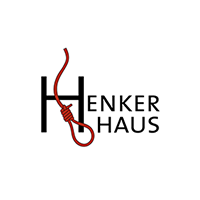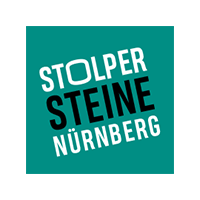Statement from Nancy Freund Heller
Max Freund was born 27 March 1885 in Kleinwallstadt, Germany. The sixth of eleven children, Max’s parents were Liebmann Freund (1848 – 1918) and Sara Grünbaum Freund (1856 – 1907).
The Freund family had lived in Kleinwallstadt since at least the 1700s and probably settled in Bavaria even earlier. Max’s great-grandfather, Liebmann Freund, was a Schutzjude, or protected Jew, which allowed him to own property and run a business. I’m sure that Liebmann never imagined that his large family would one day run for their lives from the country that for hundreds of years they had called home.
Of Liebmann’s 11 children, one son died in infancy. One son, Moritz, died in combat as a German soldier in France in World War One. That left nine children. Seven escaped Germany before their fellow Germans could murder them.
Two siblings, Max and his sister Karoline, did not manage to escape and were murdered by their fellow Germans, Karoline in Theresienstadt and Max and Bella in Riga. We laid a Stolperstein for Karoline last year here in Nuremberg.
Today we remember Max Freund, and his wife Bella Gerngroß Freund. Bella Gerngroß was born October 9, 1894 in Nuremberg, Germany. Her parents were Emanuel Gerngroß and Nanny Gerngroß (born Kohn). Bella’s father was born in nearby Fürth and died in 1940 while her mother Nanny (born in Ebelsbach) died in 1939, both supposedly of heart attacks. Little is known about Bella’s immediate Gerngroß family.
Max and Bella were married in Nuremberg on 6 February 1919. Together they had a son, Walter Liebmann Freund. Walter was born on 24 March 1920 and fled from Germany to America in December 1938. By all accounts, Max and Bella were a happy couple. Numerous letters show that both parents adored their son Walter and hoped to be reunited in America.
Max was in business with some of his brothers. The company, Gebrüder Freud (Freund Brothers), was formed by Max and his brother August. August gave his share to his youngest brother Hugo, my grandfather. The Freud brothers sold leather goods and then mortgages. Max and Hugo also owned real estate. With the race laws under the National Socialists, doing business became nearly impossible. Max and Bella were forced to leave their home and share an apartment with other Jews, as their German neighbors confined them to ghettos.
Hugo, August and most of the other siblings left Germany. Max tried hard to hold on to his business even after the Nazis forced him to close it. After the war, Max’s son Walther and Max’s brother Hugo (my grandfather) filed for restitution (payments made by the German government to victims of Nazi persecution). It failed. The people who “bought” the properties made all sorts of claims and refused to pay. The families of Max and Hugo Freund got nothing.
It is a mystery why Max and Bella did not leave Germany in 1938 with their son. We believe that there was a lawsuit pertaining to a piece of real estate in Nuremberg because several letters refer to it and Walter mentioned it to one of his sons. It seems that the lawsuit was settled, but it took time. Time was not on the Jews’ side.
We know that after Walter left for America, Walter and many others in the family worked hard to get Max and Bella out of Germany. We have many letters written by Max and Bella to their son Walter in America, showing how the Freund and Gerngroß families desperately tried to save them.
Leo Gerngröß, a wealthy whiskey distiller and perhaps Bella’s cousin, nearly succeeded in saving Max and Bella. Leo provided Affidavits of Support to the U.S. government, which he had done successfully for other family members. The State Department did not accept them for Max and Bella because an official decided that Leo already had pledged to support too many other relatives (That was ridiculous. Leo was wealthy enough to support all of them. And his support wasn’t needed. All the Freunds who escaped to America supported themselves. None received any sort of public assistance.)
On the Freund side, cousin Louis Joseph and Max’s siblings also worked hard. Louis Joseph, a prosperous executive for the Wilson Meat Packing Company of Chicago, provided Affidavits of Support and money for many desperate Jewish Germans, including my grandfather Hugo Freund. But when Max and Bella applied for U.S. visas, the State Department also rejected Louis Joseph’s paper because, like Leo Gerngroß, he had offered help to “too many” persecuted Jews.
Seeing that Max and Bella were barred from the USA, Leo tried other avenues of escape. Leo wrote to Walter that he had cabled Max and Bella telling them that the Cuban Legation in Berlin – no doubt because Leo had paid money and used connections – had issued visas for them on 8 November 1941. Leo went on to say that others around the same time had made arrangements to get out.
News of conditions in Germany was known in America. Max’s brother David Freund wrote to Max and Bella’s son Walter on 12 November 1941 that “the news from outside are so shocking that one has to empathize with the fear in which these people are living every minute. May God grant that they will be able to do everything they can to get out.”
Max and Bella’s last letter to their son was written on 21 November 1941. Either they didn’t yet know that they were eligible for visas to Cuba, or they still hoped to join their son in America. In that letter, they wrote that they had gone to the U.S. Consulate seeking visas and that more bureaucratic barriers had been added.
Eight days later, on 29 November 1941 – nine days before Germany declared war on the USA – Max and Bella were deported to Jungfernhof, a remote farming area in Latvia near the Riga Ghetto. There were no fences because it was in the middle of nowhere; escape was impossible. Roughly hewn barracks were installed in a few unheatable barns and cattle sheds with gaping holes to accommodate close to 4,000 prisoners. Max and Bella – considered “old” at ages 56 and 47 years – probably were shot as soon as they stepped off the train. Of the 500 people transported with them, 9 survived.
Today, there is nothing to mark the spot in Latvia. The site has been converted into a public park, designated for leisure and relaxation. All records pertaining to the Jungfernhof camp have been destroyed.
Today, we acknowledge the service of Max and Bella’s son, Walter Freund, who joined the American spy agency then called the OSS and later the CIA to fight the Nazis. A native German speaker, Walter went back to Germany after the war ended in Europe as a military governor, supervising espionage efforts against the Soviets. Walter, an American patriot, worked his entire career for the CIA. His family is proud of his service.
Walter, an only child, lost his whole family.
Let us remember Max and Bella Freund.
Zichronam l’vracha.
May their memories be a blessing.



